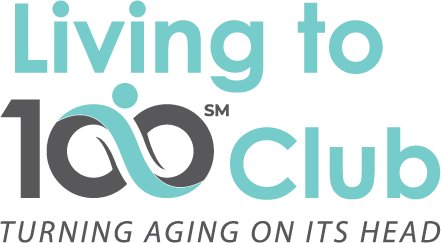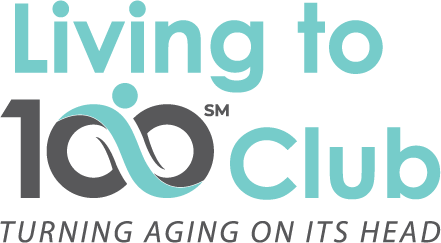by
Joe Casciani, PhD
The notion of someone who is aging successfully frequently implies optimum physical and mental health. But, to me, successful aging also applies to those who struggle with a medical or personal challenge and learn to cope with or manage the challenge. This article explores the psychological challenges of rehabilitation following a medical event or condition, and the different ways an individual progresses or does not progress through the treatment.
Introduction
Rehabilitation becomes an indispensable ingredient to restore functioning or manage the impact of a medical event or condition on a person’s functioning. It also seeks to reduce the extent and severity of a disability following this event or medical condition. Consequently, several factors influence the success of this rehabilitation, whether in the form of physical, occupational, or speech therapy. At the top of this list is the person’s motivation, determination, and perseverance during the rehabilitation process. Whether success is a reversal of the effects of the event or illness, or improved coping and management of the condition, the best predictor of a successful outcome is the attitude of the person involved.
Treatment for Medical Condition
Rehabilitation is the targeted, comprehensive approach to return an individual to his or her former functional status. Or, to maintain and preserve the present level of functioning. It is the most useful in trying to improve or restore independent functioning in mobility. This includes transferring from bed to wheelchair or toilet, balance, and self-care activities such as feeding, grooming, and dressing,
Rehabilitation may follow the onset of a major disabling illness, such as a hip fracture, with the goal of restoring original functioning (i.e., restorative therapy). Or it may be a continuous, ongoing effort to maintain functioning to the highest extent possible, while reinforcing the treatment techniques provided earlier during restorative therapy (i.e., maintenance therapy). As such, rehab treatment represents the process of delivering services necessary to return to or maintain the highest level of functioning possible.
Rehab teams are typically comprised of: (a) a physical therapist (improving range of motion, strength, endurance, balance, and mobility), (b) occupational therapist (improving activities of daily living, such as eating, grooming, dressing, hygiene, and adapting to sensory losses, such as blindness), (c) speech therapist (improving communication, speech and swallowing), and (d) physiatrist (comprehensive functional evaluation and recommending treatment). In some settings, a social worker, nutritionist, and recreation therapist are considered part of the rehab team.
Reasons for Rehab Treatment
Reasons for rehab treatment vary by the nature of the illness or disability. Examples of referrals include swallowing disorder due to Parkinson’s disease, aphasia due to a stroke or acute hip or shoulder fracture. Referrals may also be for muscle weakness due to arthritis, gait disturbance after hospitalization, or flare-up of arthritis limiting ADLs. Co-existing medical conditions, such as a neurological condition like Parkinson’s disease, will possibly interfere with rehab progress and potential for recovery. Similarly, there are co-existing psychological factors. These include depression, anxiety, stress, negative future outlook, and low expectations for improvement that can impact successful rehabilitation.
What are the Medical Consequences?
The possible risks of poor outcome depends on nature and severity of reason for admission to a rehab program. There is also a potential for increased dependence or total dependence on caregivers, and reduced quality of life due to restricted self-care and daily living activities.
What are Contributing Factors?
For contributing factors, look at precursor health behaviors to acute disability or trauma. These may be high blood pressure; hypertension related to stroke; high risk taking behavior related to accidents and falls; complications from lifestyle, such as drinking or smoking; and dietary issues related to exacerbation of chronic conditions.
There are several psychological that interfere with rehabilitation. These include depression with hopelessness, negative self-esteem, and useless, joyless forecasting; anticipation of pain and discomfort; low discomfort tolerance.; unrealistic assessment of ability leading to unsafe behavior; and fear of falling or being injured during rehab.
What Negative Attitudes Can Develop?
The common themes voiced by patients resisting or not cooperating with their plan is that the motivation is lacking, they have unrealistic expectations about getting better, or they don’t see improvement. Common statements include:
- Depression: “It’s hopeless. I’ll never get any better.” “I’m just a burden on everyone. Why waste everyone’s time.” “I’m just a worthless piece of junk.” “I won’t be able to do all the things I used to do. What’s the point of this life?” “What’s the use of going to therapy, I’ll never be normal again; I just don’t have the confidence that I’ll ever make any progress.”
- Anxiety “It’s going to be unbearably painful.” “They will let me fall or hurt me.” “The therapist will try to get me to do things I can’t do and then they will be mad at me.” “No one understands what it’s like to not be able to walk.”
- Low discomfort/frustration tolerance: “It’s too hard to do all of the exercises.” “I’ll participate in rehab when I feel more up to it.” “I can’t stand the discomfort of all that work. It’s best I just stay in bed today and take it easy.” “It’s just too painful to do those exercises they don’t help; I don’t want to depend on others – it’s embarrassing.”
Closing
This article puts the spotlight on the many psychological challenges of rehabilitation. Our attitude about recovery, motivation to persevere in the face of difficulty, and the presence of other psychological limitations will definitely color the course of rehabilitation. To be sure, there are many psychological challenges of rehabilitation. With understanding, support, and gentle encouragement, the positive view is these are all remediable.
This article is reproduced here from the author’s book, Handbook of Health and Behavior: Psychological Treatment Strategies for the Nursing Home Patient. Though many medical conditions and corresponding psychological interventions are addressed in this book, its main thrust is the importance and use of the health and behavior CPT codes introduced by Medicare for psychologists. Be sure to visit our website, Living to 100 Club, for more on successful aging.


